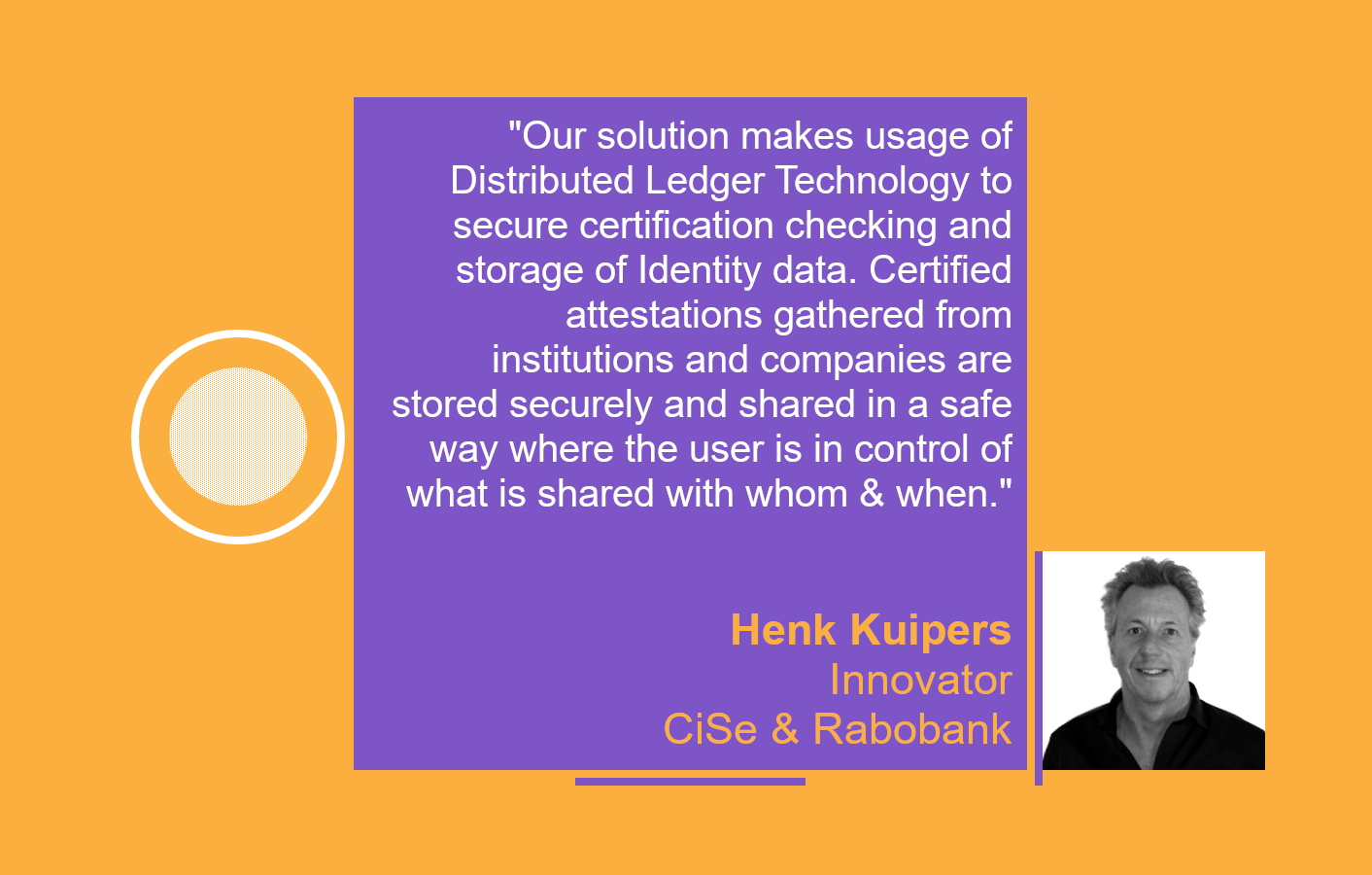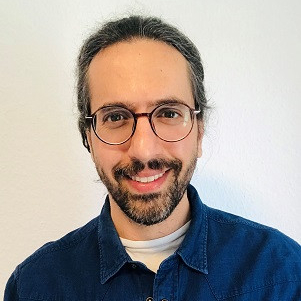“Smart contracts will immutably register E-Mobility usage on the blockchain ledger and automatically make instant split micropayments to all parties involved in providing the service,” says Henk Kuipers as we speak about their project collaboration in the DLT4EU accelerator programme.
The DLT4EU accelerator programme identifies and connects distributed ledger technology (DLT) entrepreneurs with leading public and private sector organisations for social and public good.
DLT4EU is led by a consortium comprised of Metabolic, Digital Catapult and Ideas for Change, with direct support and advice of the European Commission’s Joint Research Center.
Henk Kuipers is an Innovator at the Strategy & Innovation department of Rabobank in The Netherlands. He is involved in an initiative called CiSe, the Circular Service network, a cooperation between four founding companies Unc Inc, Sustainable Finance Lab, Allen & Overy and Rabobank.
Sebastian Klemm: Which deep economic reforms do we need to tackle, in order to arrive at regenerative & intragenerationally just societies that manage to live within planetary boundaries?
Henk Kuipers: Our current economic model has a big flaw: Manufacturers of equipment have no incentive to develop circular products. It is a linear model where companies and consumers buy equipment, use it and then dispose of it.
However, it is possible to change this by turning the model into a circular model through accelerating the servitization. In a service based model, manufacturers retain ownership of equipment which they sell as-a-service. This will incentivize manufacturers to develop equipment that lasts longer, is easy to maintain and can be recycled in the end. The “Value Hill” by Circle Economy illustrates this change:

Sebastian Klemm: What particular qualities of the DLT4EU accelerator distinguish this programme in your opinion?
Henk Kuipers: The idea is to provide a testbed for innovative solutions. It offers a network of experts and master classes to learn more about specific topics and mentors that support venture teams in developing their ideas and help them in developing a product or service. It is an international setting and offers chances to come into contact with experts in the field.
Sebastian Klemm: Why do you participate in the DLT4EU programme?
Henk Kuipers: Our Circular Service network (CiSe) is an initiative that addresses both topics Digital Citizenship and Circular Economy. Digital Citizenship is addressed by the IDA wallet, an identity wallet that helps citizens in sharing identity information in a privacy and GDPR compliant manner. The CiSe infrastructure makes it easy for companies to offer equipment-as-a-service by automating administration and payment using blockchain technology and smart contracts.


Sebastian Klemm: What are the societal and environmental challenges that your particular Virtual Field Lab project “Shared E-Mobility” addresses?
Henk Kuipers: This question needs to be answered from three perspectives: cities, citizens and E-Mobility providers.
Cities:
Cities need to move from traditional carbon based transport to a circular, low-carbon transport:
- Cities are looking into new transportation modes by offering inexpensive, shared and low-carbon or non-carbon alternatives. This will help decrease emissions and air pollution, and help become a healthy city with an active, sharing community.
- Municipalities and communities have a mix of private and public transport providers. There is a need to integrate private and public transportation modes for creating future-proof cities.
Citizens:
From the perspective of citizens there are two factors that play a role with non-owned (e-)mobility and current public transport cards.
- How do I know my private data is safe?
- How do I keep track of my usage, payments and deposits?
E-Mobility providers:
During our previous validation process, we learned that providers of pay-per-use & new mobility concepts experience payment & identity as a pain in their work process:
- How to ensure my client is who he says he is?
- How to ensure I comply with the GDPR?
- How can I ensure payments are made without excessive deposits? – Administration and cash flow management are a burden.
Sebastian Klemm: How do you apply distributed ledger technologies in your project to help solve these challenges for the public good?
Henk Kuipers: Our solution makes usage of Distributed Ledger Technology (DLT) in three different ways:
- DLT & Shared Infrastructure: A blockchain platform that accelerates the service economy by making it easy to offer equipment-as-a-service in combination with value added services. It is a shared source of machine events: the blockchain provides a trustworthy and shareable data source so service providers can combine services. The DLT also provides a legal audit trail of machine events.
- DLT & Micro-payments: Smart contracts will immutably register E-Mobility usage on the blockchain ledger and automatically make instant split micropayments to all parties involved in providing the service. Payments can be made without transaction cost to a minimum amount of €0.000001.
- DLT & Self Sovereign Identity (SSID): DLT facilitates secure certification checking and storage of Identity data. Certified attestations gathered from institutions and companies are stored securely and shared in a safe way where the user is in control of what is shared with whom and when. Copying of documents is no longer needed.

Sebastian Klemm: Throughout the DLT4EU programme and along the bootcamps with mentoring therein: What have you been developing so far?
Henk Kuipers: An improved pitch which explains the idea. A video that illustrates the solution we envisage from an end user perspective. Technical proof of how process steps could work:
- Onboarding at a service provider using the IDA identity wallet.
- Charging a blockchain wallet from a banking service (virtual currency creation).
- Instant (micro) payment splitting to automate transactions involved in service usage / payment.
- Connecting different equipment to the blockchain wallet to enable service usage.
- Emptying a wallet (service provider) and convert back to fiat money.
- Wire frames for the app.
- Dashboard visualisation for service providers and financial partners.
Sebastian Klemm: With regard to DLT applications for digital identity, Javier Creus from Ideas for Change says in our previous interview: “Identity and data self management supported by DLTs will surely empower citizens to develop new capacities and roles.“
Could you elaborate on how your identity application became GDPR compliant and why GDPR can be easily trusted?
Henk Kuipers: The Identity Wallet was developed with data and privacy protection legislation incorporated by design. In fact, it was developed to help organisations and citizens to easily share privacy sensitive data in a safe and GDPR compliant manner. The subject matter around identity data is complex and needs explanation to end users. The following video explains the purpose of the Identity Wallet in general. Now, we are planning to create a similar video for end users to explain the CiSe solution and how it solves the relevant data and privacy issues.
Sebastian Klemm: Beyond privatized platform business models: To what extent could collectively funded platforms, e.g. maintained through a transparent foundation, provide a further basis of integrity for citizen data processing and management? Could blockchain based token enable service platform startups to become co-owned and co-governed by their core stakeholders in this regard?
Henk Kuipers: The CiSe infrastructure could be used as a crowdfunding mechanism, enabling service users to invest. We envisage to incorporate this functionality later on. CiSe does not only offer automatic payment handling for pay-per-use models, but also replicable and affordable structures compliant with legal, financial and accountancy requirements. This improves scaling possibilities and the ability to attract funding for pay-per-use businesses for all stakeholders including users of shared E-Mobility. CiSe is in the process of founding an organization to enable this.

Sebastian Klemm: In our preceding interview about DLT4EU, Alice MacNeil says: “One of my favourite experiences was with the Venture Teams as part of a Storytelling Masterclass by Hayley Bagnall, as part of the Barcelona Bootcamp in November. It was rewarding to see how the teams shifted their narrative about what they were doing, from a technology-first perspective to a more social, impact-driven focus. Not only was it fun, but we learned a lot about how to tell the story of your project and the power of storytelling. DLT can be quite niche, and this kind of approach allows us to tell a better story to a wider audience, to connect DLT4EU to a more public and democratic space.”
What have been inspiring moments to you personally during both your work together as a Virtual Field Lab team & within the overall DLT4EU programme so far?
Henk Kuipers: It was inspiring to see that, after initial struggles in understanding our solution, the challenge owners, the Greater London Authority and the London Legacy Development Corporation, were enthusiastic about our work.
The Storytelling masterclass was also inspiring. Our focus was mainly on technical proof of our vision, but we learned that focussing on explaining our solution was possibly even more important.
Sebastian Klemm: Following your participation and insights so far: What evidence of positive impact and benefits of the DLT4EU accelerator do you see already? Were there any particular developments in other Virtual Field Lab teams that also helped you?
Henk Kuipers: Looking at other teams and our own team, I think the current impact of DLT4EU is that teams are now much more able to explain their ideas and the steps they want to take.
We saw that other teams also learned a lot about how to communicate about their ideas. Their pitches improved from bootcamp to bootcamp and I think other teams also increasingly focused on communication.
Sebastian Klemm: How will you sustain your engagement and project development beyond the final presentations at the European Commission in March 2021?
Henk Kuipers: We agreed to stay in contact with the Greater London Authority and the London Legacy Development Corporation after DLT4EU and will try a proof of concept later when COVID-19 restrictions have been lifted.
The founding partners of CiSe also feel very motivated to continue their work and have had great benefit from the program.
Continue:






